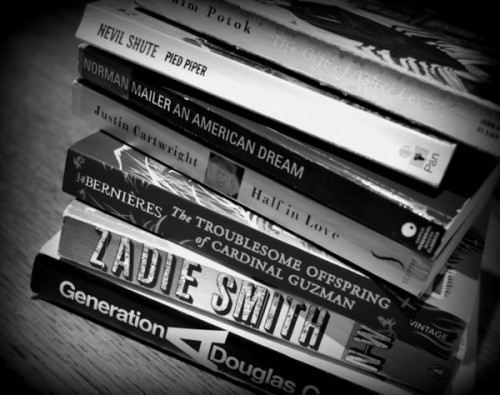
If you are relatively smart, then the world can be an unhappy place, particularly during the teenage years. Smart people stick out. Many people are suspicious of smartness, if indeed they can detect it in the first place. This raises the question: do you have to be smart to realize that someone else is smart? Can you recognize the extra smartness in someone significantly smarter than you? Or do you just find them ‘different’?
As Hemingway noted in his celebrated quote: ‘happiness in intelligent people is the rarest thing I know.’ It’s in part because smart people stick out, but also because our popular culture is aimed squarely at the middle ground. Popular culture is excruciating, and everywhere, and if you are smart, you end up feeling a bit of a misfit.
That’s why reading is such a salvation. In the film ‘Shadowlands’, screenwriter William Nicholson gives C.S. Lewis a particularly memorable line: ‘We read to know we are not alone.’
As we read, we hear ideas voiced that we thought were just our own. We find companionship in the discovery that others have gone before us, faced similar challenges, experienced the same highs, and have plummeted to the same depths. Reading exposes us to fresh perspectives: it re-tells our own story through the experiences and emotions of others.
Re-telling our own story is important. Most of us like the idea of personal transformation. Most of us have things we would like to change about ourselves, but we discover that direct attempts to effect these changes are almost always non-productive. For change to occur, there must be a retelling of our own narrative – the internal story that configures how we see ourselves in the world. If that is changed, then change can follow quite naturally.
Two things are needed, I reckon, for us to begin this process of transformation. First is a change of scene. Our familiar routines keep us trapped in our own perspective. It’s important to change those routines from time to time. Take a different route to work. Go somewhere new. Order a different coffee. [Aside: travel is a great way of opening ourselves up to change. That’s one of the reasons I love it so much. Airports are exciting for me.] The second is to expose ourselves to the worlds of others: to hear stories.
Films, plays, visual art and books all play a role here, but it is reading that I think has the most power to effect change.
This is because, as we read, we take the words in to our minds, and add to them. They become part of us. No one reads the same book as another: for each, the experience of that book is quite different. How much we engage with a book and the ideas and stories it contains varies massively, depending on us, our situation, where we read it and how we are feeling at the time. This is one of the reasons I like to re-read a good book. It’s wrong to think we have ‘read’ a book, as if that is somehow now done. For good literature, a re-read is valuable.
Reading is also an active process. It is something we initiate. I think this is important. With television or film, we are passive. To pick up a book and engage with it is a positive process, not something done to us. This changes the relationship between us and the story.
I’ve said it before, here – I think I’d be a better writer if I set aside one day a week just for reading. I read as much as I can (especially in the bath), but I suspect that reading more would do me no harm. We read. We realize we are not alone. I like that.
4 Comments on On reading


Thanks for this post. Was timely for me
“There are worse crimes than burning books. One of them is not reading them.”
― Joseph Brodsky
A good post. I would be lost without books.
Thanks for stating in a coherent and compelling manner what I’ve long suspected – I’ve shared this with my son, who reads almost a book a day and ‘sticks out’ as described.